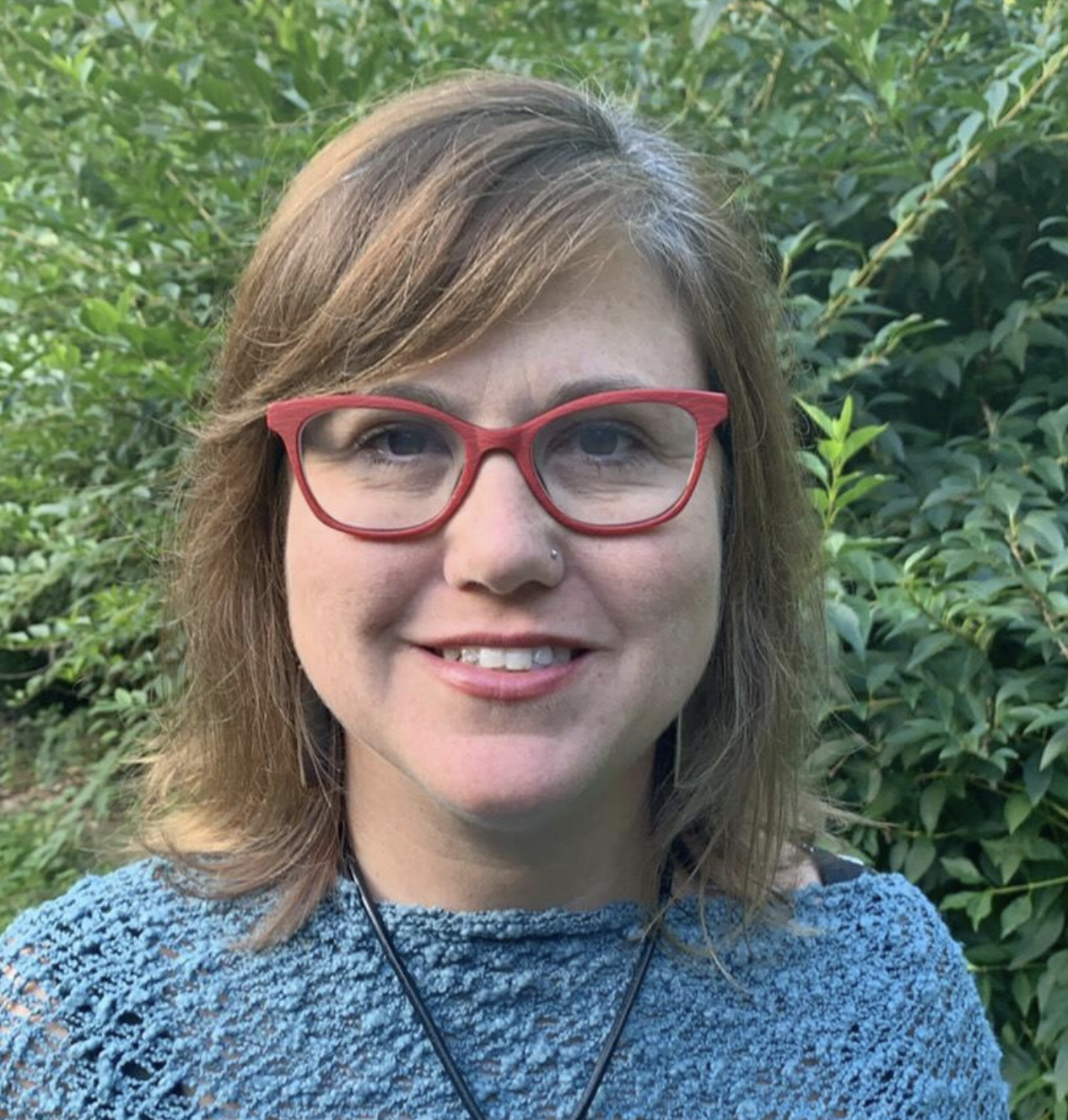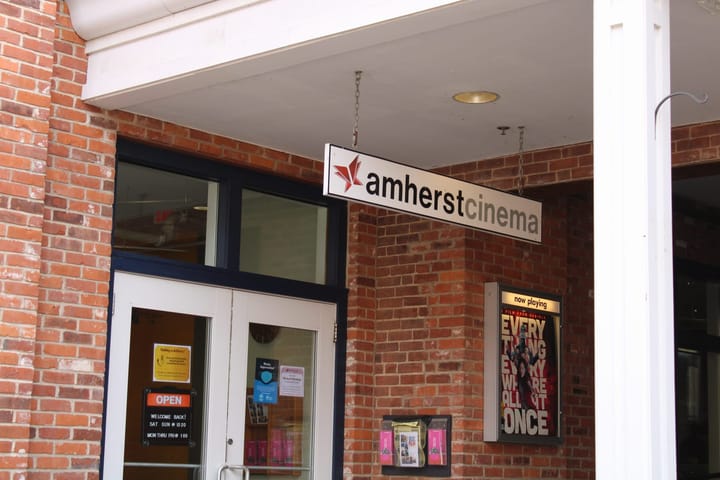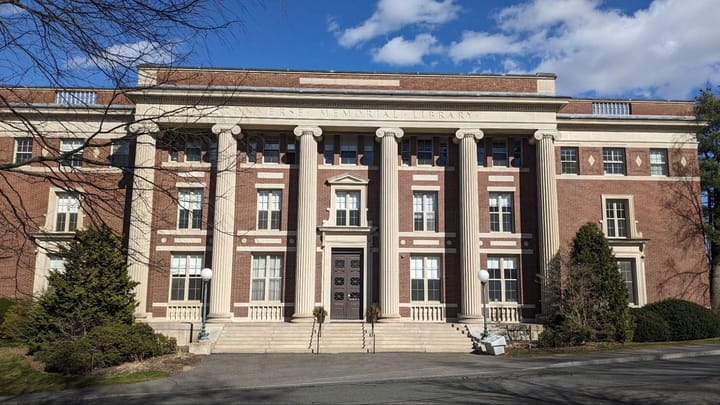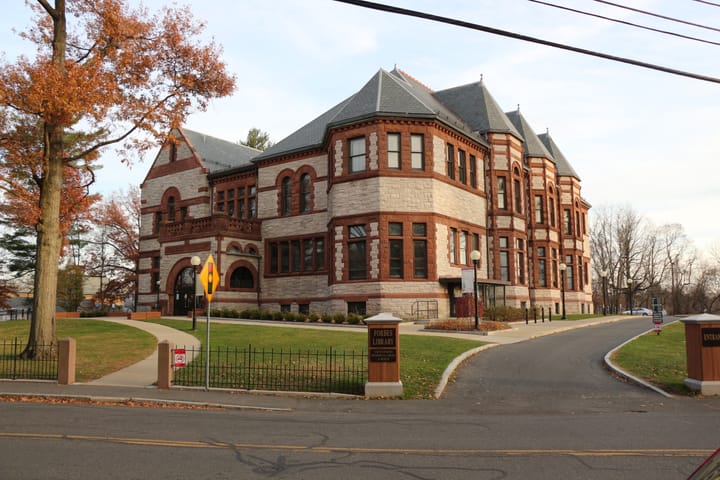Fresh Faculty: Kristen Luschen

Kristen Luschen is the Lewis-Sebring visiting professor in educational studies. She received her bachelor’s and master’s degrees from the State University of New York at Buffalo. She completed a doctorate in cultural foundations of education and a certificate of advanced study in women’s studies at Syracuse University. This will be her first semester teaching at Amherst after 19 years at Hampshire College.
Q: Can you tell me about how you got to Amherst this semester? A: Amherst has a burgeoning educational studies program, and you all had a wonderful visiting faculty member Leah Gordon here, but Leah moved onto a different position. At the same time, I was transferring from an administrative position at Hampshire, and going on sabbatical and then moving back into full-time teaching, when I was contacted and asked if I would be interested in coming to Amherst for two years to continue the work in the educational studies initiative — to keep the momentum going and to continue to serve a number of students who are interested in education studies.
Q: How do you feel about starting to teach at Amherst? Is there anything you’re looking forward to, nervous or curious about? A: I’m excited to get back into the classroom! I haven’t been actively teaching in a classroom for a few years, although I have been working with students on their individual projects and theses. It seems like there’s a lot of energy around education studies, so I’m excited to be part of that and to work with students who are eager to take classes in this area. You know I’ve taught at Hampshire, which is pretty non-traditional, for the past 19 years. So I think I’ll just have to get my head back into some basic things like, you know, grading instead of writing narrative evaluations. That’ll be a tiny bit of a challenge, but for the most part I’m just really excited to get back into the classroom and work with students.
Q: Can you tell me a little bit about your backstory — where did you grow up, and where did you go to school? A: I grew up in a tiny farm town called Sanborn outside of Niagara Falls, New York, and went on to college at the State University of New York at Buffalo. I was the first in my family to go to college, and so I was a first-gen college student, first-gen person to go on to graduate school, and most of my family still lives in the area. I entered thinking I was going to go into law, and then fell in love with sociology. I came into education studies by way of sociology and women’s studies, and it was really a professor from a sociology and gender course who really opened up opportunities for me to think about gender in critical ways. I then started to take classes with Lois Weiss, who is in the school of education at SUNY Buffalo, who really helped me think about sociology and education. I ended up going from there into a program that allowed me to pursue sociology and education and gender studies at Syracuse. And then I went to Hampshire, and was there for 19 years.
Q: Can you tell me about the classes you’re teaching this semester? A: I’m teaching two classes that are central to the core of my teaching and research. One of them is called Belonging in School — which is really connected to my research. We think about belonging as “Do I belong in this particular space? Do people like me? Do I get along? Do I feel connected?” This course looks at the social, political and historical factors that really shape someone’s experience of belonging and capacity to participate in schooling. The other one I’m teaching is called Gender, Feminisms and Education. And that’s having us think about the ways in which feminists have framed the issues of girls’ empowerment and educational inequity — what do we know, at this point? What are the nuances around educational inequity as it relates to gender? And for both classes, we look at the strategies and practices that have been employed to address these issues.
Q: Can you tell me about your research? A: Generally, my research is broadly looking at girls at school. As an ethnographer, I was looking at a middle school and how it’s involved young people in one of its core missions, which was unconditional positive regard. So, I was looking at how young people make sense of that and what the school climate was like for them, in particular with regard to belonging. At the same time, my students and I were also working to teach a course to help the students define what unconditional positive regard meant for them, and to help create that understanding via a social media campaign related to unconditional positive regard in the school. So, we were looking at the factors influencing belonging in young women in that school and the ways in which young people can actively help to cultivate a sense of participation and belonging in the school.
Q: What do you do outside of school? A: Honestly, I spend a lot of time connecting with people. I’m very close with my family. I have two sons: one is in college and one is in high school. I spend a lot of time with my family; I go back to Buffalo and Niagara Falls quite frequently. And I love going out, having coffee with friends and really connecting with people.





Comments ()